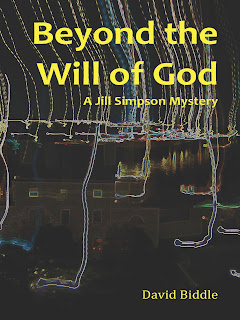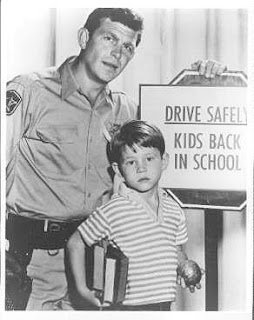Loving Day on My TV? And Who's a European American?
 |
| Author Matt Johnson and his book cover floating next to him |
You will find a lot of articles online that came out in the summer of 2014 claiming that Asian Americans are the fastest growing minority group in America. They apparently had a growth rate of 2.9% from 2000 to 2010, overtaking Hispanic Americans who only had a rate of 2.1%.
Let's get this straight: In actuality, the fastest growing "minority group" in America is people who identify as mixed race. Results from the 2010 US Census show citizens who identify as "two or more races" had a 32% increase in numbers from the 2000 US Census. Read about it at HuffPost in "Multiracial American Population Grew Faster Than Single-Race Segment In 2010 Census."
So, 2.9% versus 32%. Who wins? Hell yeah, Mulatto Nation! We rock! And the media, once again, is full of shit.
Of course, us hybrids only represent 2% of the U.S. population. Asian Americans sit at 5.6%, while Hispanics represent 17.1% of the puzzle pie.
So, um, right, Mulatto Nation has a ways to go. That's fine. We've got time. Mixed race procreation is a socio-mathematical inevitability.
Don't wrorry, it is not lost on me that the so-called "majority," the "White Alones" (yup, that's the official U.S. Census category), represents 63.7% of this blessed nation. That was 196,817,552 citizens in 2010 (now in excess of 200 million, for sure, here halfway through this second century of the New Millennium). If you understand my socio-mathematical reference, though, you know that the majority, so to speak, is sowing the seeds of it's own flowering possibilities.
I offer this data in light of Mat Johnson's recently published novel Loving Day, and news just this week
that the Showtime network has inked a deal with the author to develop a comedy based on the novel. I'm reading Loving Day right now, here at the end of the Summer of 2015. It's a serious intellectual feat of comedy and pathos about being a mixed race person in the modern screwed up world. Loving Day works hard to spill Race in America all over the side of the road for everyone to pick through to their heart's content.
At one point, Johnson writes in his book: “People aren't social, they're tribal. Race doesn't exist, but tribes are fucking real.”
| Mildred and Richard Loving (Photo credit: Wikipedia) |
That's just a morsel of what's going on in this book.
For the uninitiated, Loving Day is a real American Day. Every year on June 12th we (some of us, anyway) honor the Supreme Court Decision in the case, Loving vs. Virginia, that rescinded laws on the books in a number of these United States banning interracial marriage. That case was decided in 1967. It was brought by Mildred and Richard Loving against the State of Virginia (Mildred was African American and Richard was not). They were arrested in Richmond, Virginia for "cohabiting as man and wife, against the peace and dignity of the Commonwealth."
One thing I've always loved about the Lovings is that they were married in 1958, the same year I was born. I am the product of an African American father and a European American mother. I only met my birth mother 12 years ago (at the age of 44). I have never met my birth father. I sent him a heart-felt letter last winter, but he never responded back.
Johnson's novel is not really about the Lovings. It is about a mixed race (Afro-Irish) guy named Warren Duffy who returns home to Philadelphia essentially broken and defeated by adult life. His African American mother raised him in the Germantown neighborhood of Philly. He returns home, though, to a 7-acre "estate" called Loudin Mansion falling apart in Germantown, that he has inherited from his Irish American father. The interesting thing about Warren is that while he is what some people call bi-racial, his skin tone is devoid of discernible melanin. The dude looks white ... to some people, anyway. He has been able to "pass" whenever he wants ... or needs. That can mess with your head big time and everyone else's.
Being a good tragic American male, Warren decides to burn Loudin Mansion down, collect the insurance money, and get the hell out of town. However, things become a bit dicey when the father of an old teenage girlfriend (a good Jewish girl who died a few years before) shows up and introduces Warren to a girl named Tal -- who turns out to be Warren's daughter. That's a little bit of knowledge the girl friend never saw fit to make him aware of. And so the story gets interesting.
What's great about Mat Johnson in general, and his novel Loving Day in particular, is that the question of Mulattoness in America is finally out there in full glory for everyone to see. More importantly, the idiocy and mythic comedy of "Race in America" becomes the butt of jokes and a punchline in numerous social and psychological riffs by this half comedian, half literary artist. Johnson slaps the reader upside the head lyrically, comically, tragically, and pathetically over and over again with his send ups of the strange fire of tribalism that so many people live with as if it were necessary. Actually, he slaps you upside the head, inside the heart, right between the eyes, in the groin, solar plexus, stomach, etc. Then he wipes all sorts of stuff all over your face. Some of it is potentially insulting or even offensive. Some of it is quite thought-provoking, even tender and touching. Here's a paragraph that maybe does it all:
I am a racial optical illusion. I am as visually duplicitous as the illustration of the young beauty that’s also the illustration of the old hag. Whoever sees the beauty will always see the beauty, even if the image of the hag can be pointed out to exist in the same etching. Whoever sees the hag will be equally resolute. The people who see me as white always will, and will think it’s madness that anyone else could come to any other conclusion, holding to this falsehood regardless of learning my true identity. The people who see me as black cannot imagine how a sane, intelligent person could be so blind not to understand this, despite my pale-skinned presence. The only influence I have over this perception, if any, is in the initial encounter. Here is my chance to be categorized as black, with an asterisk. The asterisk is my whole body.
I know that feeling. I have lived a version of it my whole life. It's rare to find words like that in other people's work (I do slip it into my own writing, but that's another story).
What I keep thinking about most as I quite slowly read Loving Day is my personal, somewhat stilted problem with the identifiers "Black" and "White" so many people throw around in debating racism and race, etc. It seems impossible to have a meaningful conversation about something that is very emotionally real if you use language that is false. There are no "black" people in America. And there are no "white" people either. There may be African Americans and European Americans. There may also be people with brownish skin (some of them are Italian, Jewish, Asian and, of course, Hispanic). We might be able to say there are folks with dark skin and light skin. In fact we do, but then we ignore that and go back to polar stupidity using the terms "black" and "white."
Jokingly, you will hear of pigmented people and the pigment challenged. I wonder often, though, how one might categorize someone with prominent freckles. I wonder too, of course, about my personal proclivity towards freckled women. I can't help it. They seem to be the Other Mulattoes in America that no one talks about. My wife is a freckled, beautiful Irish-American woman. She gets my engine revving every day.
But I digress. Loving Day may be coming to cable TV. Holy shit! If Mat Johnson's intelligent but raucous and irreverent take on race has the opportunity to enter American living rooms, things may never be the same.
It can be argued that all intelligent comedy in America is trying to get at the truth about this country's struggle to understand race and racism (no one does, you know) -- along with sex and sexism, of course. If you want to argue that point, please note that I said "intelligent comedy."
We've done pretty well with sex and sexism over the past few decades. Situation comedies like Cheers, Seinfeld, and Friends all center around the implications of coupling and canoodling and, usually, stupid stereotypes about sex and romance. But race and racism is a lot harder. Part of the reason for that is the tendency for jokes to come from a specific racial point of view. Whether you're watching Archie Bunker or George Jefferson or Aasif Mandvi, the joke is a stereotype because the speaker is doing some silly version of "you people" from his (or her) "my people" soap box.
But what happens when mixed race people start talking about stereotypes? Mat Johnson works hard at creating a Mulatto Nation mentality for "us people" but he's also very clearly doing that as a joke that, I think, he intends, or hopes to have, bomb. Mixed race people have no single set of propositions to fall back onto. Each of us, being honest with ourselves, knows the whole game of "my people" vs. "you people" is a rigged and foolish game of chicken that always ends in a crash, with body parts strewn all over the road, broken hearts, slogans that sound ridiculous, and, all too often, dead human beings -- often innocent, or at least unworthy of being dead.
In a nutshell, standard racial jokes work because the joke is on the speaker. That's as it should be. Right? Even when Eddie Murphy or Richard Pryor lay it on heavy, we laugh because they're being so ridiculous. That changes when you have a mixed race asterisk at the microphone. The joke is no longer on the speaker. The joke is on the listener (or the reader). Yes, the comic may be ridiculous and may spew stereotypes and caricatures every which way, but in the end the audience has to see that they are the butt of it all and the punchline.
I'm really excited, then, to see how "Loving Day" fairs as a media event. What happens when a mixed race character says as Johnson does in his novel: “I have found that, in the African American oral tradition, if the words are enunciated eloquently enough, no one examines the meaning for definitive truth.”
What happens, indeed, if people figure out as they're watching this new comedy, that the same thing has been true for most people in everything they've been enunciating about race so eloquently for the past several decades -- that they've failed to examine the meaning of their words for definitive truth. What happens, in fact, when people realize the reason for this failure is that it's impossible to escape because people are stuck in these groups they claim, and they can't get out?
Will that be comedy? It's going to be interesting to watch and find out. In the meantime, read the book. It's really good if you like intelligent writing, and reading an author at play with our ideas of race that both mocks and hits the nail right on the head.









Comments
Post a Comment